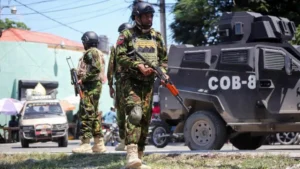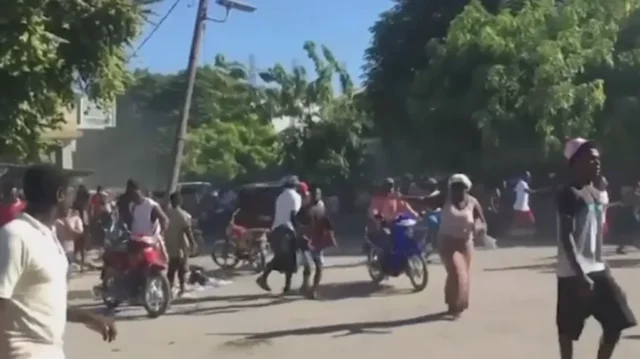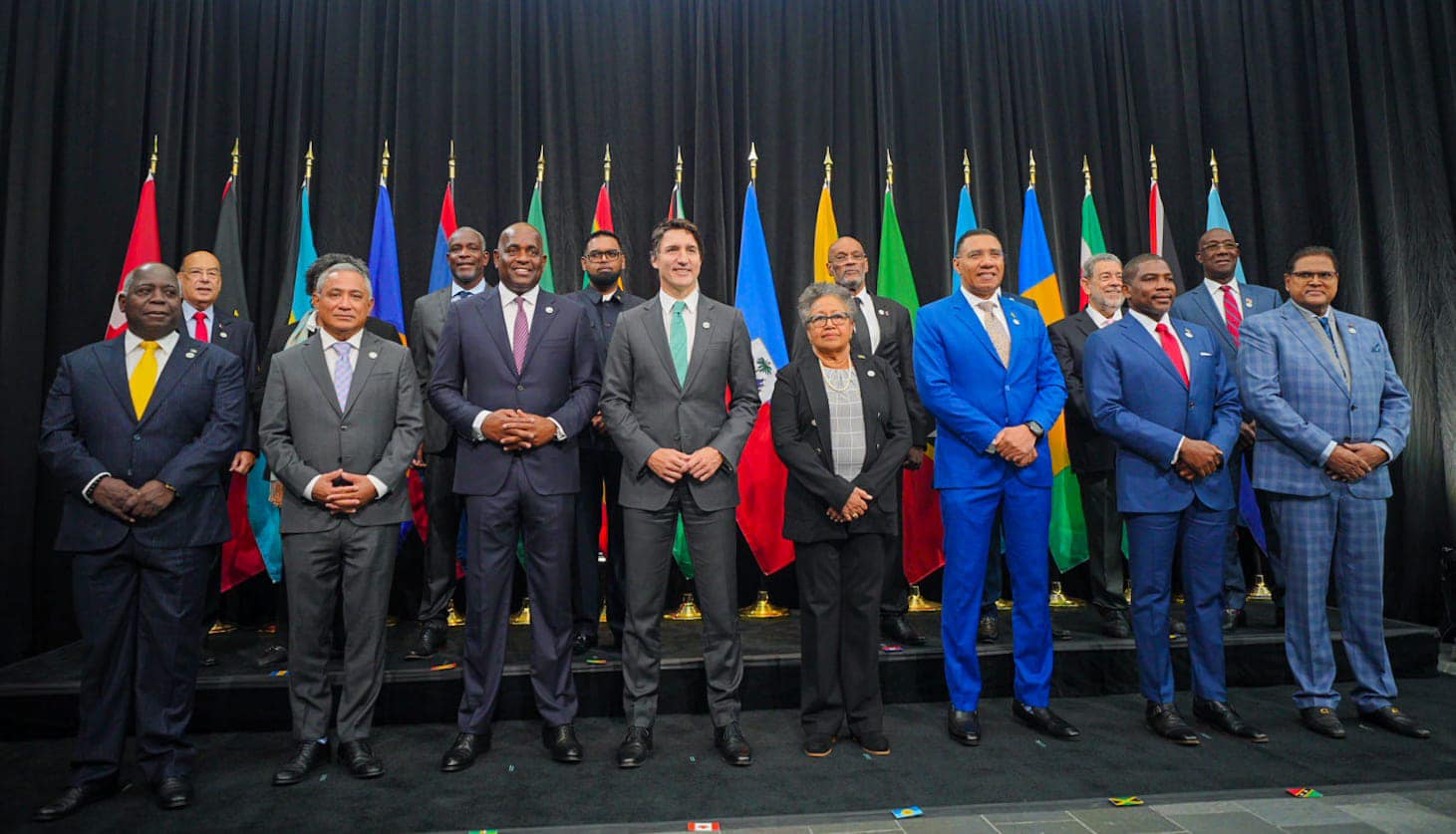[Reuters] – Armed men belonging to the Gran Grif gang killed at least 70 people, including three infants, and forced at least 3,000 to flee as they swept through a Haitian town shooting automatic rifles at residents, the U.N. said on Friday.
“We are horrified by Thursday’s gang attacks in the town of Pont-Sonde in Haiti’s Artibonite department,” U.N. spokesperson Thameen Al-Kheetan said in a statement.
At least another 16 people were seriously injured in the attack in the early hours of Thursday, including two gang members hit during an exchange of fire with Haitian police, according to the U.N. The gang members reportedly set fire to at least 45 houses and 34 vehicles, forcing residents to flee their homes.
The killings are the latest sign of a worsening conflict in the Caribbean nation, where armed gangs control most of the capital Port-au-Prince and are expanding to nearby regions, fuelling hunger and making hundreds of thousands homeless, while nearby countries continue to deport migrants back to the country.
“This odious crime against defenseless women, men and children is not only an attack against victims but against the entire Haitian nation,” Prime Minister Garry Conille said on X.
Conille added that security forces were “reinforcing their intervention” in the area. His office said the public hospital in nearby Saint-Marc was boosting capacity to treat the wounded.
Haitian online TV showed security forces moving into Pont-Sonde, where a burnt-out vehicle lay on the road and bullet casings were gathered on the ground.
In an audio message shared on social media on Thursday, Gran Grif leader Luckson Elan, who was sanctioned by the U.N. last month, blamed the state and victims for the attacks, accusing residents of remaining passive while his soldiers were killed by police or vigilante groups.
“It’s Pont-Sonde residents who are at fault. What happened in Pont-Sonde is the fault of the state,” he said.

The U.N. has accused Elan’s gang of killings, rapes, mass kidnappings, robbery, destroying property, hijacking trucks and forcing farmers off swaths of land, threatening to kill them if they return.
“Gran Grif has also committed some of the highest levels of child recruitment in Haiti,” according to the U.N. Security Council. The U.N. believes Haiti’s gangs are armed largely by guns trafficked from the United States.
But Haiti’s judicial system has been paralyzed for years. According to the U.N., no progress has been made in the cases of any mass killings committed since 2021, as well as several major massacres since 2017.
Police are alleged to have taken part in some massacres. Gang leader Jimmy “Barbeque” Cherizier, a former police officer was accused by the U.N. of planning and taking part in the 2018 killing of 71 civilians in the capital’s port-side neighborhood of La Saline.
The port, a key supply corridor, has been closed since late last month due to gang attacks, worsening the already dire food crisis.
CALL FOR ASSISTANCE
Pont-Sonde is a major rice producer located in Haiti’s breadbasket Artibonite region, built around a bridge and important crossing connecting the capital to the north.
The region has seen some of the worst violence outside the capital, compounding a worsening hunger crisis that has seen half the population suffer from severe food insecurity and thousands in Port-au-Prince facing famine-level hunger.
Cherizier, who has acted as spokesperson for an alliance of armed gangs in the capital, said in a video the attack was part of a plan to prevent Artibonite from supplying food to the country.
The number of people internally displaced by the conflict has meanwhile surged past 700,000, nearly doubling in six months despite the partial deployment of a U.N.-backed mission mandated to help under-resourced police restore order.
“We cannot turn a blind eye,” said Raouf Mazou, an executive at the U.N.’s refugee agency, on Friday, pointing to shortages in food, medical supplies and blocked humanitarian aid.
Haiti has so far received a fraction of the resources it was promised and been frustrated in efforts to bring in a formal U.N. peacekeeping mission. Many countries made formal pledges of money and troops, but so far only around 400 have arrived, mostly from Kenya.
“We call for increased international financial and logistical assistance” to the mission, Al-Kheetan said, urging an urgent investigation and reparations for the victims, a call echoed by a spokesperson for U.N. chief Antonio Guterres.
Haiti’s prime minister warned last month that countries should urgently fulfill their pledges in order to contain the situation.
The U.N. estimated at the end of September that 3,661 people had been killed in the gang violence since January.
Haiti’s former government first requested international security support in 2022.
Countries including the United States and the UK, which both hold territories in the Caribbean, have meanwhile continued to organize deportation flights back to Haiti, despite pleas not to do so by the United Nations.
Responding to the “limited” results of the mission more than a year after it was formally approved, neighboring Dominican Republic said this week it would step up deportations of undocumented migrants to up to 10,000 per week.












